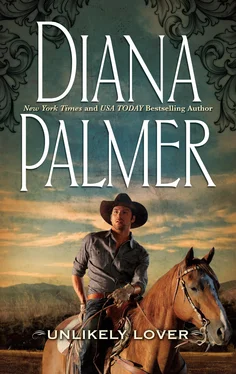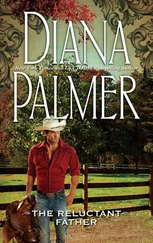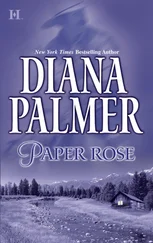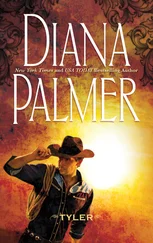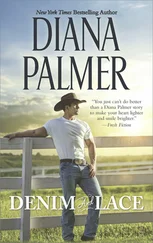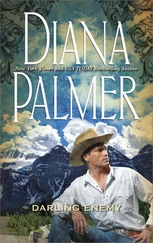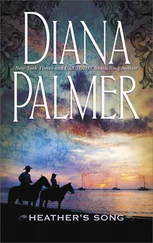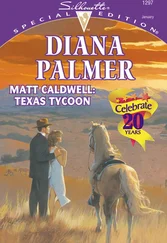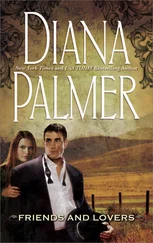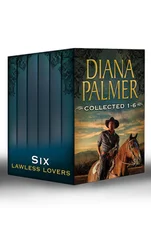He wondered if Tyson Wade was regretting his decision to lease the pastureland so that Ward could look for the oil that he sensed was there. He and Ty had been enemies for so many years—almost since boyhood—although the reason for all the animosity had long been forgotten in the heat of the continuing battle over property lines, oil rigs and just about everything else.
Ty Wade had changed since his marriage. He’d mellowed, becoming a far cry from the renegade who’d just as soon have started a brawl as talk business. Amazing that a beautiful woman like Erin had agreed to marry the man in the first place. Ty was no pretty boy. In fact, to Ward Jessup, the man looked downright homely. But maybe he had hidden qualities.
Ward grinned at that thought. He wouldn’t begrudge his old enemy a little happiness, not since he’d picked up those oil leases that he’d wanted so desperately. It was like a new beginning: making a peace treaty with Tyson Wade and getting his crotchety grandmother out of his hair and off the ranch without bloodshed. He chuckled aloud as he drove back to the house, and it wasn’t until he heard the sound that he realized how rarely he laughed these days.
Chapter Two
Marianne Raymond didn’t know what to expect when she landed at the San Antonio airport. She knew that Ravine was quite a distance away, and her Aunt Lillian had said that someone would meet her. But what if no one did? Her blue eyes curiously searched the interior of the airport. Aunt Lillian’s plea for her to visit had been so unusual, so…odd. Poor old Mr. Jessup, she thought, shaking her head. Poor brave man. Dying of that incurable disease, and Aunt Lillian so determined to make his last days happy. Mari had been delighted to come, to help out. Her vacation was overdue, and the manager of the big garage where she kept the books and wrote the occasional letter had promised that they could do without her for a week or so. Mr. Jessup wanted young people around, he’d told Lillian. Some cheerful company and someone to help him write his memoirs. That would be right up Mari’s alley. She’d actually done some feature articles for a local newspaper, and she had literary ambitions, too.
Someday Mari was going to be a novelist. She’d promised herself that. She wrote a portion of her book every night. The story involved a poor city girl who was assaulted by a vicious gang leader and had nightmares about her horrible assailant. She’d told Aunt Lillian the plot over the phone just recently, and the older woman had been delighted with it. Mari wondered about her aunt’s sudden enthusiasm because Lillian had never been particularly interested in anything except getting her married off to any likely candidate who came along. After her father’s death, especially. The only reason she’d agreed to come down to Ravine was because of poor old Mr. Jessup. At least she could be sure that Aunt Lillian wasn’t trying to marry her off to him!
Mari pushed back her hair. It was short now, a twenties-style pageboy with bangs, and it emphasized the rosy oval of her face. She was wearing a simple dropped-waist dress in blue-and-white stripes and carrying only a roly-poly piece of luggage, which contained barely enough clothes to get her through one week.
A tall man attracted her interest, and despite the shyness she felt with most men, she studied him blatantly. He was as big as the side of a barn, tall with rippling muscles and bristling with backcountry masculinity. Wearing a gray suit, an open-necked white shirt and a pearly gray Stetson and boots, he looked big and mean and sexy. The angle of that hat over his black hair was as arrogant as the look on his deeply tanned face, as intimidating as that confident stride that made people get out of his way. He would have made the perfect hero for Mari’s book. The strong, tender man who would lead her damaged heroine back to happiness again…
He didn’t look at anyone except Mari, and after a few seconds she realized that he was coming toward her. She clutched the little carryall tightly as he stopped just in front of her, and in spite of her height she had to look up to see his eyes. They were green and cold. Ice-cold.
“Marianne Raymond,” he said as if she’d damned well better be. He set her temper smoldering with that confident drawl.
She lifted her chin. “That’s right,” she replied just as quietly. “Are you from Three Forks Ranch?”
“I am Three Forks Ranch,” he informed her, reaching for the carryall. “Let’s go.”
“Not one step,” she said, refusing to release it and glaring at him. “Not one single step until you tell me who you are and where we’re going.”
His eyebrows lifted. They were straight and thick like the lashes over his green eyes. “I’m Ward Jessup,” he said. “I’m taking you to your Aunt Lillian.” He controlled his temper with a visible effort as he registered her shocked expression and reached for his wallet, flashing it open to reveal his driver’s license. “Satisfied?” he drawled and then felt ashamed of himself when he knew why she had reason to be so cautious and nervous of him.
“Yes, thank you,” she said. That was Ward Jessup? That was a dying man? Dazed, she let him take the carryall and followed him out of the airport.
He had a car—a big Chrysler with burgundy leather seats and controls that seemed to do everything, right up to speaking firmly to the passengers about fastening their seat belts.
“I’ve never seen such an animal,” she commented absently as she fastened her seat belt, trying to be a little less hostile. He’d asked for it, but she had to remember the terrible condition that the poor man was in. She felt guilty about her bad manners.
“It’s a honey,” he remarked, starting the engine. “Have you eaten?”
“Yes, on the plane, thank you,” she replied. She folded her hands in her lap and was quiet until they reached the straight open road. The meadows were alive with colorful wildflowers of orange and red and blue, and prickly pear cacti. Mari also noticed long stretches of land where there were no houses and few trees, but endless fences and cattle everywhere.
“I thought there was oil everywhere in Texas,” she murmured, staring out at the landscape and the sparse houses.
“What do you think those big metal grasshoppers are?” he asked, glancing at her as he sped down the road.
She frowned. “Oil wells? But where are the big metal things that look like the Eiffel Tower?”
He laughed softly to himself. “My God. Eastern tenderfoot,” he chided. “You put up a derrick when you’re hunting oil, honey, you don’t keep it on stripper wells. Those damned things cost money.”
She smiled at him. “I’ll bet you weren’t born knowing that, either, Mr. Jessup,” she said.
“I wasn’t.” He leaned back and settled his huge frame comfortably.
He sure does look healthy for a dying man, Mari thought absently.
“I worked on rigs for years before I ever owned one.”
“That’s very dangerous work, isn’t it?” she asked conversationally.
“So they say.”
She studied his very Roman profile, wondering if anyone had ever painted him. Then she realized that she was staring and turned her attention to the landscape. It was spring and the trees looked misshapen and gloriously soft feathered with leaves.
“What kind of trees are those, anyway?” she asked.
“Mesquite,” he said. “It’s all over the place at the ranch, but don’t ever go grabbing at its fronds. It’s got long thorns everywhere.”
“Oh, we don’t have mesquite in Georgia,” she commented, clasping her purse.
“No, just peach trees and magnolia blossoms and dainty little cattle farms.”
She glared at him. “In Atlanta we don’t have dainty little cattle farms, but we do have a very sophisticated tourism business and quite a lot of foreign investors.”
Читать дальше
